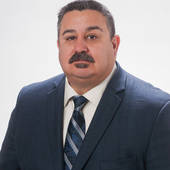Many sources can add moisture to the air in your home. When you go outside on a cold day and can see your breath, you really are seeing moisture coming from your lungs as a normal part of breathing. Breathing and perspiring send moisture from your body into the air of your home. Other sources are:
· Taking a shower or bath
· Boiling water or cooking
· Washing dishes and letting them dry on a drainboard
· Hand washing clothing and hanging it to dry indoors
· Operating certain types of appliances, such as a clothes dryer that is not vented to the outdoors
· Having house plants
Just because the activities listed above can increase moisture in your home does not mean you should stop doing them. You still can cook food, hand wash clothing, take showers and keep house plants. Simply make sure your normal living patterns do not result in an excessive amount of moisture build-up in your home.
You may want to have your indoor environment assessed by a CIEC Council Certified Indoor Environmental Consultant to help identify any elevations of allergens in your home and identify the cause and origin so you can take the appropriate corrective action. If you need to have your home inspected for mold make sure your mold inspector is a Florida State Licensed Mold Assessor. To be licensed as a Mold Assessor the State of Florida ensures that your mold assessor is properly, insured, and trained.
The earlier you can detect the growth of mold in your home, the better a chance you have to control it. Early detection and treatment are very important. If you smell a musty odor in your house, start looking for the source immediately and remove it as soon as you find it. Prevention and early detection may save you from paying much greater cleanup and repair expenses later on. If you own your home, damage from mold and the cost of removing mold might not be covered by your homeowner insurance. (Read your policy or call your insurance agent to find out.)
Before hiring a mold assessor, check with the State of Florida to ensure that your mold assessor is licensed, insured, and trained.

Comments(0)